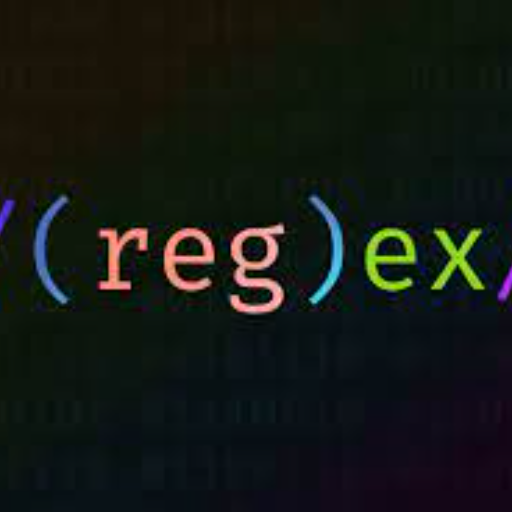Solidity Developer-Solidity smart contract development tool.
AI-powered Solidity smart contract builder.
How do I optimize a Solidity contract?
What are best practices in Solidity?
Explain smart contract security in Solidity.
How to structure a Solidity project?
Related Tools
Load More
Solidity Developer
An expert Solidity developer aiding in smart contract creation and optimization.

Assistant Architect | LangChain Developer
Create AI-powered modules in Python and JavaScript

Blockchain Developer
Experts on develop EVM based blockchain

Web3 Blockchain Expert
Web3 and blockchain tech expert, offering insights and advice.

Uniswap Dev Buddy
Uniswap V3 dev helper with clear code and math explanations.

React Js Expert Developer
React JS expert with a focus on practical coding solutions, using uploaded documentation for accuracy.
20.0 / 5 (200 votes)
Introduction to Solidity Developer
Solidity Developer is designed to offer expert guidance on all facets of Solidity, the programming language used to write smart contracts for Ethereum and similar blockchains. The primary purpose of Solidity Developer is to assist developers in writing secure, efficient, and scalable smart contracts by providing detailed technical advice, best practices, and real-world scenarios for optimal implementation. In addition to general contract development, Solidity Developer focuses on security (e.g., mitigating vulnerabilities like reentrancy attacks), optimization (e.g., gas optimization), and deep architectural understanding (e.g., using inheritance and libraries effectively). For example, in a scenario where a developer is working on a decentralized finance (DeFi) platform, Solidity Developer can guide them on implementing functions like liquidity pools or yield farming mechanisms with the necessary security precautions and optimized gas usage.

Core Functions of Solidity Developer
Smart Contract Design
Example
A developer is creating a decentralized voting system with multiple voting options. Solidity Developer provides insights on how to design the voting logic using structs, mappings, and arrays while keeping the contract gas-efficient.
Scenario
A developer seeks to implement a decentralized voting platform. Solidity Developer assists by explaining how to manage vote delegation, ensure fairness in vote counting, and secure the process with minimal gas consumption using inheritance and efficient storage patterns.
Security Auditing and Best Practices
Example
A developer needs to secure a smart contract that manages multi-signature wallets. Solidity Developer suggests patterns like 'Checks-Effects-Interactions' and contract lifecycle management (e.g., proper use of `selfdestruct`) to prevent common attacks.
Scenario
While working on a multi-signature wallet contract, a developer consults Solidity Developer to identify possible vulnerabilities, including preventing replay attacks and safeguarding against integer overflows. Solidity Developer provides guidance on using OpenZeppelin libraries for added security.
Gas Optimization and Contract Efficiency
Example
Solidity Developer advises a team working on a DeFi project about gas efficiency in loops and mappings, recommending techniques like using memory arrays over storage and optimizing for the Ethereum gas model.
Scenario
A DeFi project that frequently updates user balances seeks to lower transaction costs. Solidity Developer explains how to minimize writes to blockchain storage by caching calculations in memory and recommends patterns like 'view' and 'pure' functions to reduce gas costs.
Target User Groups for Solidity Developer
Blockchain Developers
Developers who are focused on writing Ethereum smart contracts, particularly those who want to enhance their skills in Solidity, benefit greatly from Solidity Developer. They can learn about advanced topics such as modular contract development, efficient gas usage, and securing contracts against known vulnerabilities.
DeFi Protocol Builders
Teams and individuals working on decentralized finance (DeFi) platforms will find Solidity Developer invaluable due to its focus on optimizing smart contracts for complex financial applications like token swaps, yield farming, and automated market makers (AMMs). The service provides insights into managing gas costs, ensuring security during high-value transactions, and maintaining upgradability.

Detailed Steps to Use Solidity Developer
Step 1
Visit aichatonline.org for a free trial without login, no need for ChatGPT Plus.
Step 2
Ensure basic understanding of web3 development, especially Ethereum-based smart contracts, as it will enhance your experience while working with Solidity Developer.
Step 3
Explore detailed guides, examples, and best practices related to Solidity available within the tool to get a solid foundation.
Step 4
Test your smart contract code within the integrated environment and make use of the debugging, deployment, and optimization tools.
Step 5
Use the documentation and technical references provided to handle advanced concepts like libraries, modular contracts, or payment channels.
Try other advanced and practical GPTs
Grant Writing & General Assistant for Non-Profits
AI-Powered Assistance for Non-Profits

Francine the FP&A Bot
AI-powered financial insights.

Financial Cybersecurity Analyst - Lockley Cash v1
AI-driven financial security insights

Writing Advice with The Creative Penn
AI-powered insights for your writing journey

Future Forecast
AI-Powered Future Insights

Techno Guardian
Empower Your Cybersecurity with AI-Powered Insights

TrollGPT
Unleash Your Inner Meme Genius with AI.

Regex Assistant by Whitebox
AI-Powered Regex Assistant

Data Cleaner
Clean and organize your data effortlessly with AI

Research Pathfinder
AI-powered research support for STEM

Chat-GuyPT
AI-powered cultural and linguistic guide

Roulette Strategy GPT
AI-powered roulette strategy insights.

- Smart Contracts
- Web3 Projects
- Blockchain Coding
- Ethereum Development
- Solidity Testing
Common Questions About Solidity Developer
What can I use Solidity Developer for?
Solidity Developer is designed for creating, testing, and deploying Ethereum-based smart contracts using Solidity. It's suited for developers looking to streamline their contract development with in-depth debugging, testing environments, and best-practice guides.
Do I need to know Solidity to use Solidity Developer?
While having knowledge of Solidity is highly beneficial, the platform provides resources and learning tools to help beginners understand smart contract development. However, familiarity with web3 concepts will improve the learning curve.
Can I deploy contracts using Solidity Developer?
Yes, Solidity Developer allows you to write, compile, and deploy smart contracts. Integrated with major Ethereum networks, you can deploy on testnets or mainnets, depending on your requirements.
Does Solidity Developer provide real-time error debugging?
Yes, the platform offers real-time debugging tools that identify syntax errors, logic issues, and deployment problems in your smart contract code, helping you catch mistakes early in development.
What are some advanced features in Solidity Developer?
Advanced features include integration with Remix, support for Solidity libraries, contract modularization, and security-focused development practices such as reentrancy protection and gas optimization suggestions.